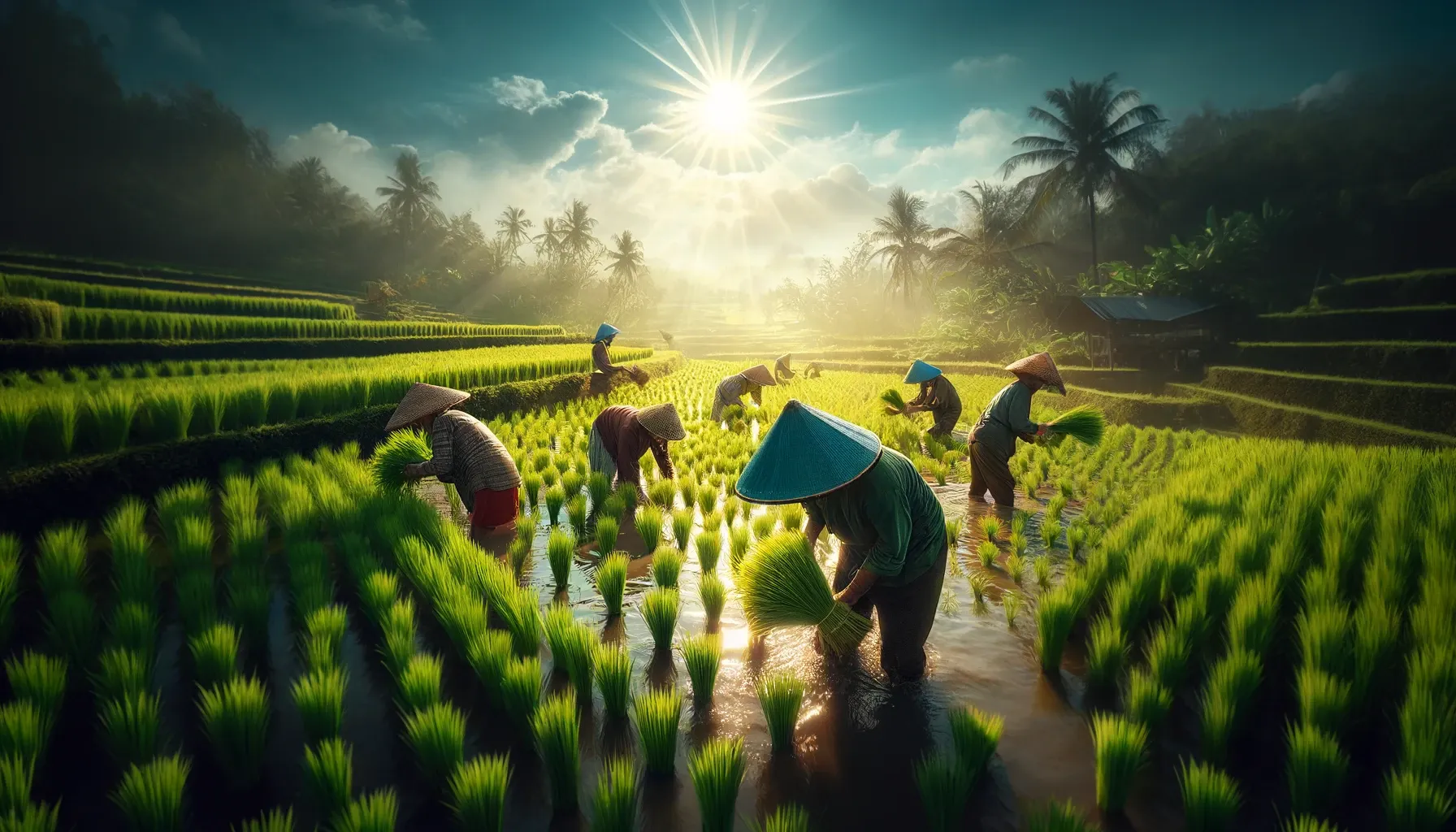Hybrid Chinese rice may become Indonesia's last resort for ensuring food security, but at what cost?

Indonesia is the third largest rice producer in the world, but it does not achieve self-sufficiency and has to import grain annually to make up for the shortfall.
Farmers in Karawang, West Java, Indonesia, May 2, 2024. Rice cultivation will become a new area of cooperation between Indonesia and China, which promises to improve food security for the Southeast Asian nation, but it may also tilt their bilateral relations.
An ambitious plan aimed at the phased development of one million hectares of rice fields in Central Kalimantan province, with the involvement of Beijing, which will provide its rice technologies in support, emerged from high-level bilateral talks last month.
Mr. Luhut Pandjaitan, the Coordinating Minister for Maritime Affairs and Investment of Indonesia, presented the details of the agricultural initiative on April 21, just a few days after the fourth meeting of the High-Level Cooperation Mechanism between China and Indonesia with Chinese Foreign Minister Wang Yi.
The annual meeting will provide an overview, planning and coordination of cooperation in various fields. The last session was held in Labuan Bajo.
“We are asking them to provide us with their rice cultivation technologies, with which they have achieved great success in ensuring self-sufficiency,” Mr. Luhut wrote on his social media account.
“And they are ready. We just need to find a local partner for its construction in Central Kalimantan, as we have land there from ancient times, up to one million hectares.” He added that they could start with 100,000 hectares at first and then gradually manage them, without specifying exact timelines.
The Indonesian state logistics company Bulog will be a third-party buyer, Mr. Luhut said, and he hopes the project will start in six months.
Mr. Jodi Mahardi, Deputy to Mr. Luhut, informed the CNA agency that a working group will be established for cooperation, and it will be within the framework of the HDCM China-Indonesia.
"So technically right now there is no information that we can disclose details to," Mr. Jodi told CNA on May 1.
In addition to rice, the government also wants China to help Indonesia develop curly pepper, garlic, durian, and seaweed later this year.
Indonesia is the third largest rice producer in the world, but it does not achieve self-sufficiency and has to import grain annually to compensate for the deficit. Farmers in Karawang, West Java, Indonesia, May 2, 2024. Rice cultivation will become a new area of cooperation between Indonesia and China, promising to improve food security for the Southeast Asian nation, but it may also tilt their bilateral relations. An ambitious plan aimed at gradually developing one million hectares of rice fields in Central Kalimantan province with the involvement of Beijing, which will provide its rice technologies in support, emerged from high-level bilateral talks last month. Mr. Luhut Pandjaitan, Indonesia's Coordinating Minister for Maritime Affairs and Investment, presented the details of the agricultural initiative on April 21, a few days after the fourth meeting of the High-Level Cooperation Mechanism between China and Indonesia with Chinese Foreign Minister Wang Yi.Tags
Comment
Popular Posts
Popular Offers



Subscribe to the newsletter from Hatamatata.com!
Subscribe to the newsletter from Hatamatata.com!
I agree to the processing of personal data and confidentiality rules of Hatamatata


